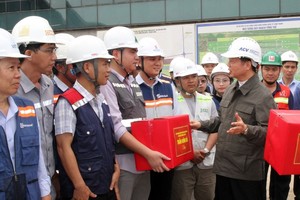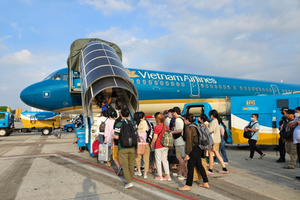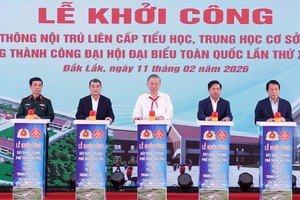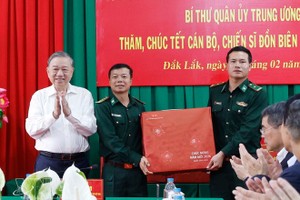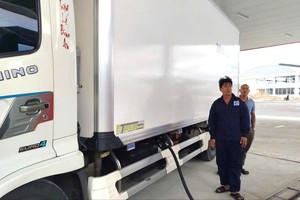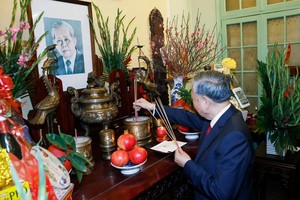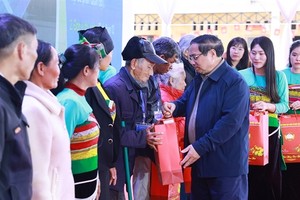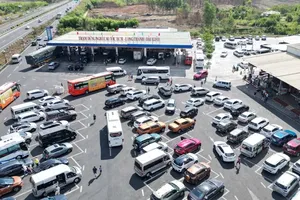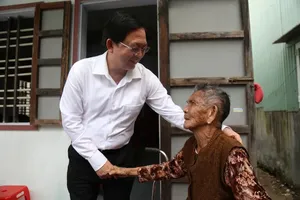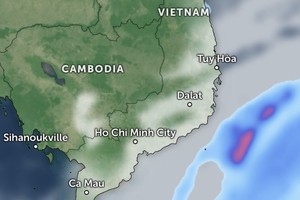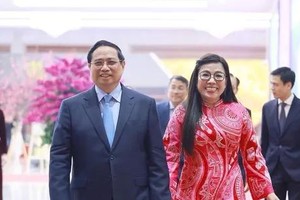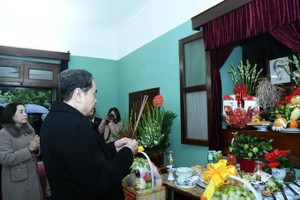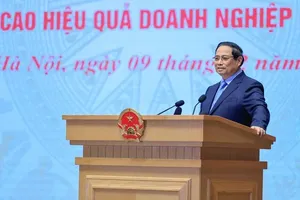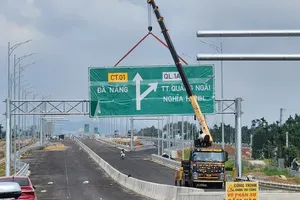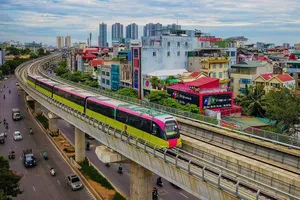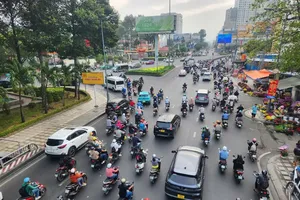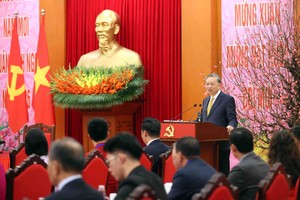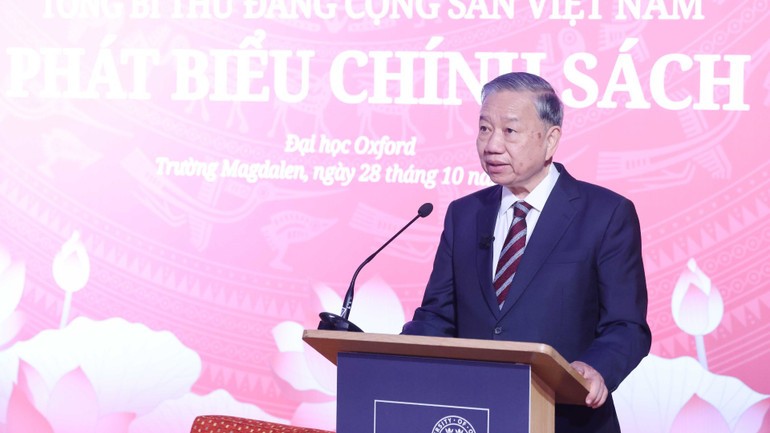
Party General Secretary To Lam has expressed his hope that British youth, research institutes, universities, innovative enterprises, civil society organizations, and future policymakers will regard Vietnam as a sincere and trustworthy partner that shares both responsibilities and benefits in a world order that is being reshaped.
General Secretary To Lam observed that the world is changing rapidly, raising not only the question of “whose side one stands on” but also “how a nation stands firm and remains self-reliant.” For Vietnam, he said, this is a vital question. “Vietnam has chosen the path of peace, independence, self-reliance, and cooperation for shared development,” he stated.
As a nation that won its independence through sacrifice and paid dearly for peace, Vietnam deeply understands its supreme value. The truth of President Ho Chi Minh that “nothing is more precious than independence and freedom” continues to guide the country’s national conduct and international relations, he underscored.
The leader emphasized that Vietnam does not pursue confrontation or conflict-based development but believes in fair dialogue, respect for international law, and mutual benefit. Sovereignty should not be asserted through guns or coercion but through mutual respect, agreements that uphold common rules, and the sharing of mutual benefits. This approach, he noted, has enabled Vietnam to maintain political and social stability while actively integrating into the global economy, joining new-generation free trade agreements, and expanding partnerships worldwide, including with the UK.
Highlighting Vietnam’s development vision in a new era, General Secretary To Lam emphasized that science, technology, innovation, digital transformation, and the knowledge economy are set to become the key drivers of growth. Vietnam is promoting a national digital transformation strategy, developing a green, circular, and low-carbon economy, and viewing innovation as the lifeblood of competitiveness and resilience. He stressed that Vietnam continues to refine its socialist-oriented market economy, which operates on market principles, encourages fair competition, and values private enterprises as a key growth engine, while upholding the socialist rule-of-law state’s guiding and regulatory role under the leadership of the Communist Party of Vietnam to ensure progress and social justice.
Vietnam regards the private sector as the most important driving force for accelerating economic growth; the State-owned sector as the leading force that ensures macroeconomic stability, economic security, energy security, and food security; and the rule-of-law State, together with integrity in governance and the fight against corruption, wastefulness, and vested interests, as essential conditions for fostering public trust, ensuring the efficient allocation of social resources, and enabling all citizens to fairly enjoy the fruits of development, he said.
“People are at the heart of all our development strategies,” he underlined. “Our goal is not mere statistics, but genuinely improving the quality of life—income, housing, healthcare, education, social welfare, personal development opportunities, and a safe, clean environment. We seek growth without sacrificing the environment, industrialization without losing our cultural identity, and urbanization that leaves no one behind.”
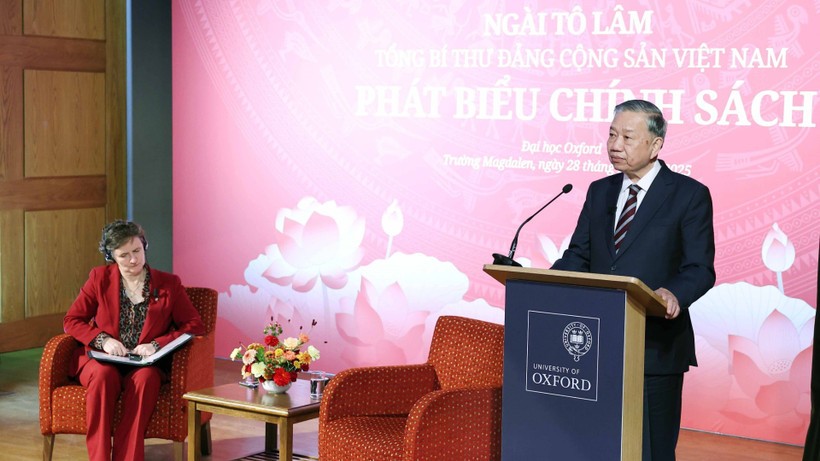
The General Secretary reaffirmed Vietnam’s two strategic objectives: by 2030, to become a developing country with modern industry and upper-middle income, and by 2045, to become a developed, high-income nation with a modern economy, advanced society, high living standards, and adequate international position.
Regarding Vietnam–UK relations, he said Vietnam views the UK not only as a trade, education, and science-technology partner but also as a long-term strategic partner in shaping 21st-century cooperation norms. He noted that the relationship is built on shared interests in maintaining peace, stability, adherence to international law, maritime freedom, resilient supply chains, fair trade, and sustainable development, as well as joint efforts in climate response and green growth.
He called for a “new model of cooperation”—practical”, measurable, and beneficial to the people of both nations, combining the UK’s strengths in advanced science, technology, health care, higher education, urban governance, energy transition, and financial services with Vietnam’s goals in digital and green transformation, human resources development, innovation, and institutional reform. This does not merely mean technology transfer but a process of future shaping together, he emphasized.
Oxford, he added, could play a concrete role in this joint creation of the future through collaborative research and training in public health, biotechnology, responsible AI, climate change, and clean energy.
He suggested the implementation of exchange programs between policy research institutes of Vietnam and policy, public governance, and sustainable development research centers in the UK; cooperation in supporting innovation and technological start-ups for Vietnamese enterprises; and joint pilot initiatives in sustainable urban development, green finance, open education, digital healthcare, and community health—areas of shared interest and urgent need for both sides. Vietnam, he said, is entering a new phase of development with a strong aspiration to build a prosperous, humane, modern, and green nation, where citizens enjoy comprehensive security and equal opportunities to flourish, pursuing the goal of a “wealthy people, strong nation, democracy, equality, and civilization.”
He emphasized Vietnam’s belief in the power of humanity and morality. The Vietnamese nation has always triumphed through compassion and righteousness, he stated, expressing his belief that true national strength lies not only in military or financial power but in moral power, unity, and trust.
He added, “We love peace, yearn for freedom and development, seek equal cooperation, reject imposition, respect international law, and wish for a united, cooperative world—because this Earth belongs to us all.” “We respect international law. We do not wish to see the world divided into opposing blocs, but rather hope for a united world. We wish for a world in which all develop together.”
In that spirit, General Secretary To Lam called for a view of Vietnam as a sincere, trustworthy partner. He said he believes that building a comprehensive, substantive strategic framework based on mutual respect, shared benefit, and long-term vision would elevate Vietnam–UK relations to new heights, becoming a driving force, a model, and a shared success story, not only for the two countries but also for peace, stability, and sustainable development in the 21st century.
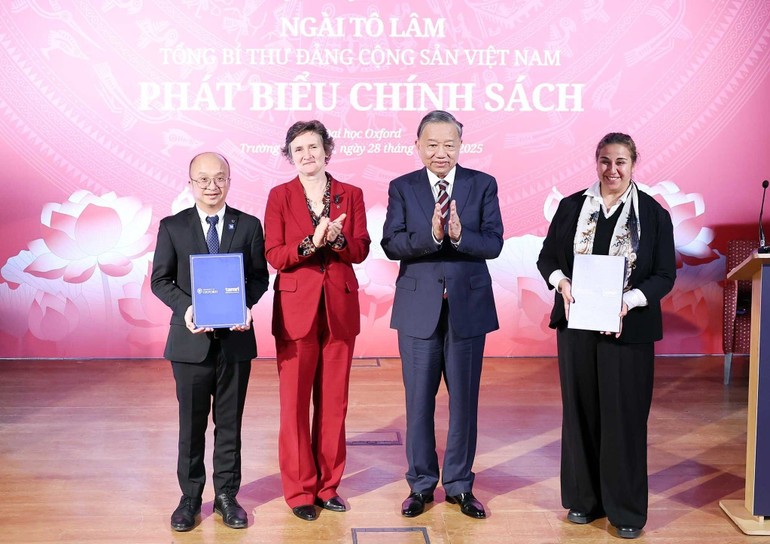
On this occasion, the General Secretary and the Vietnamese delegation, as well as leaders of the University of Oxford, witnessed the signing of several cooperation documents between Vietnamese and British partners.
They included a cooperation agreement between Tam Anh Institute of Research and the University of Oxford on healthcare training, research, and innovation, and a research partnership on Net Zero Carbon between Vietjet Air and the University of Oxford, under Vietjet’s “Fly Green” campaign for sustainable aviation, involving the use of sustainable aviation fuel (SAF), carbon offsetting, reforestation, renewable energy investment, and AI application in operations to cut emissions by 38 percent per passenger compared to older aircraft.
The deals also comprised the Oxford Pioneer Scholarship Fund, a joint initiative between Sovico Group and the University of Oxford, providing long-term learning and research opportunities for outstanding students, particularly from Vietnam. To date, 700,000 GBP has been disbursed, funding scholarships for 11 distinguished Vietnamese scholars in education, chemistry, clinical medicine, genomics, and business administration (MBA).
